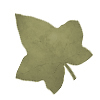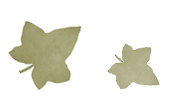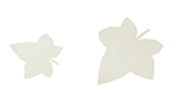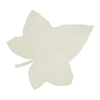|
Hops
- Humulus
lupulus
Cultivation
of this perennial, creeping herb in Britain began
in about 1520 - although it appeared earlier in
the the rest of Europe. The male flowers and female
cones (or strobiles) grow on separate plants. The
rough stems are often found twining in and out of
hedges - the coursely toothed, roughly hairy leaves
are about 10-15cms long, with yellow resin glands
dotting the underside. Flowering in July-Aug with
greeny-yellow flowers. A volatile oil, lupulin,
is formed in the glandular hairs of the strobiles.
The
strobiles are most famously used for flavouring
beer, and in folk remedies they are added to sleep
pillows, being a mild sedative and valuable for
insomnia cases. George III reportedly could not
sleep without his Hop pillow! Also well known as
a remedy for nerves, neuralgia, nervous headaches
and restlessness, menstrual cramps, sexual neurosis
(for both sexes), and is a muscle and nervous system
relaxant. An infusion of hops, taken as a herbal
tea, can help with nervous / irritable bowel syndrome.
A
soothing, relaxing remedy can be made by simmering
a handful or so of Hop cones in water for about
15 minutes to produce a strong infusion which can
be added to an evening bath. Let your exhaustion,
stress and sleeplessness float away......(just don’t
fall asleep in the bath!)
The
essential oil can help in a steam inhalation for
asthmatic problems and spasmodic coughs, and has
antiseptic, antimicrobial, bacteriacidal, and antispasmodic
actions.
Considered
an aphrodisiac.
!
The essential oil is generally non-toxic - but can
be narcotic in excessive amounts. Hops should be
avoided by those suffering from depression ! |











